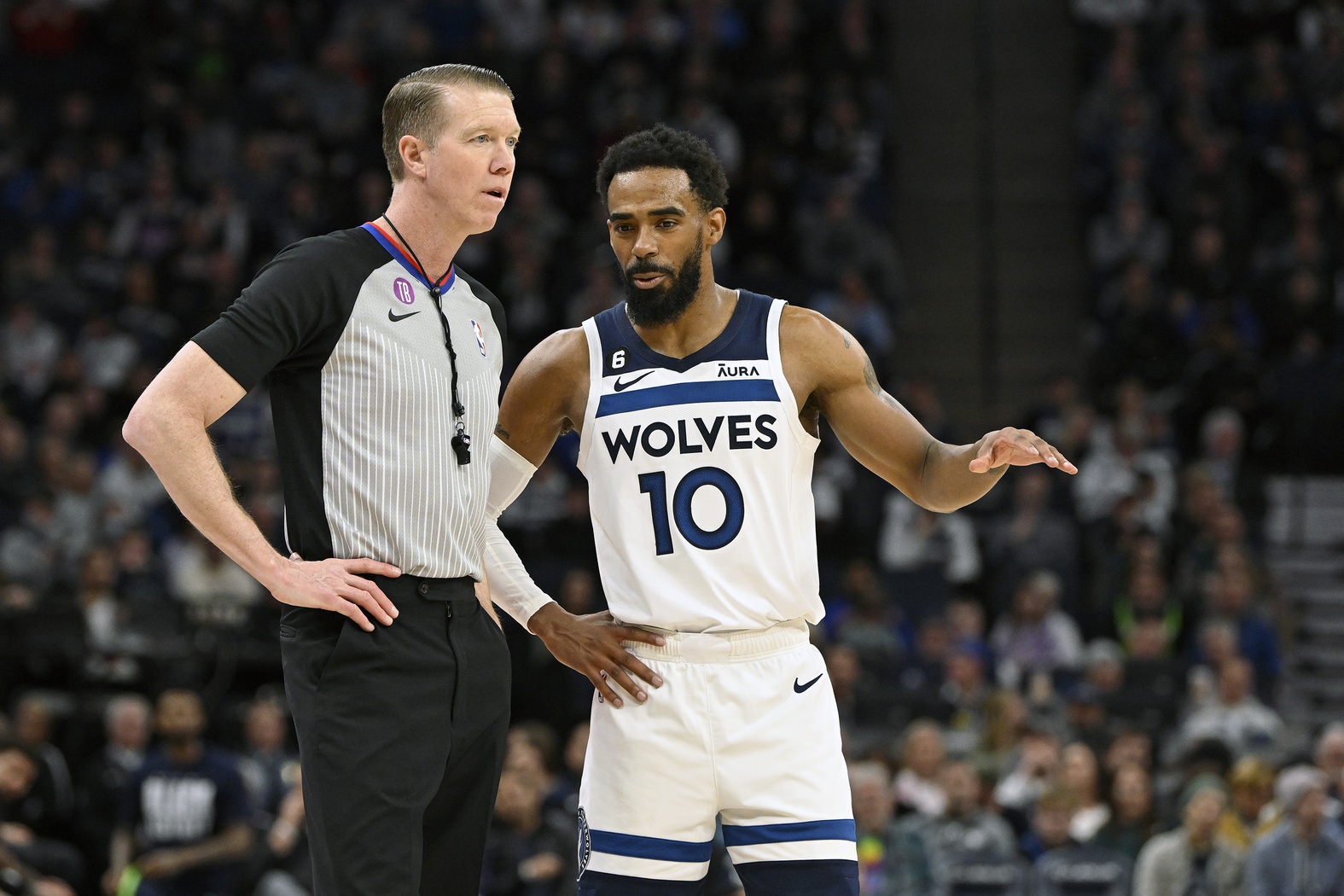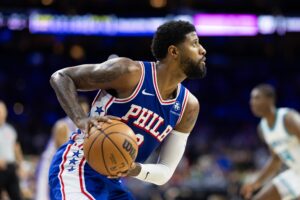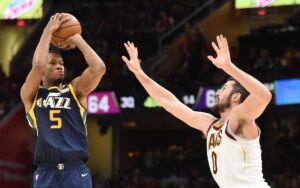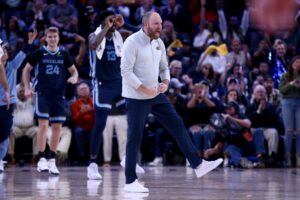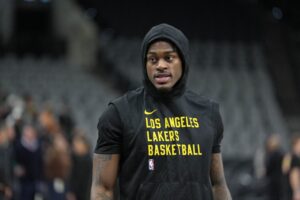Forget about the fun part, time flies no matter what. It’s already All-Star weekend, which means it’s a natural time to stop and reflect on the season thus far. Fans of the Minnesota Timberwolves have seen trades from big to massive, fun free agent signings, a five-game winning streak, a six-game losing streak, and a delayed and asterisked (yet deserved) All-Star bid for Anthony Edwards.
Four Takeaways From The Minnesota Timberwolves Season Thus Far
The mass panic caused by the Utah Jazz’s fiery start and the subsequent icy Wolves’ start feels like years ago. The trade deadline has come and gone like Fetty Wap. No more speculation, no more overreactions to game results, and definitely no more D’Angelo Russell (for better or for worse). The Wolves will be a playoff team despite their Minnesota-ish collapse against the Wizards. The Jazz could be a play-in team, but they’re looking face-to-face at a poorly done tank job. There are no more open seats at the contender’s table. However, this squad can be studied under the appropriately named “Playoff Team” microscope.
Do they have what it takes to make it to the second round? How many playoff games could they win? Does it really feel better to be a pessimist? Answers to those questions are below.
What Makes a Good Playoff Team?
Before leaning back in our armchairs and critiquing the abilities and talent of world-class athletes, there’s one item of business that needs to be addressed first. What components make up a good playoff team? Here are four facets to judge on:
Star Power
Shot creation is sought after for a reason. Basketball is about shooting open shots and forcing your opponents into contested ones. Many players need help to get open, and it’s easier to scheme a defense to mitigate what an offense can do. Self-creation in the form of dribble moves, pull-ups, fadeaways, or deep range is invaluable in times of crisis. Shot clock winding down, and there’s not enough time to run a set action? Don’t worry. Star players will still get a good shot up.
Fit
Fit is used here as an umbrella term for team cohesion, chemistry, depth, and scheme (which is a part of both fit and coaching). Ball movement is stressed by coaches around the world for a reason. A team full of quick and efficient decision-makers doesn’t win games without also having ball skills, but that decision-making elevates that team.
Coaching
In a recent podcast with Ryen Russillo, Jeff Van Gundy talked about his experiences with coaching and the common phrase, “they just were outcoached in tonight’s game.” Van Gundy pointed out that the “outcoached” analysis is always baseless, an easy excuse to sound knowledgeable without giving any real reasoning. How were they outcoached?
Van Gundy says a lot of coaching mistakes are covered up by players and that his biggest mistakes as a coach fell under one of four ways: Playing too many guys, getting caught in a bad and predictable matchup but staying with it, going to too many isolations and causing players to lose interest, and allowing a run to go one basket too long.
There aren’t many ways to defend a high pick-and-roll. Whether your team traps, hedges, switches, or whatever– coaches can prepare their squads and give them sets to operate with.
Resiliency/Culture
Everyone’s human. Teams that escape the 82-game grind have to be resilient and professional. These teams reveal themselves in the playoffs.
Examining the Minnesota Timberwolves
Congratulations, Anthony Edwards, on making his first of many All-Star teams! He’s averaged 26-6-5 on 57.4% True Shooting in 40 games without Karl-Anthony Towns. Additionhe’s averaged 1.8 steals and 0.8 blocks to go along with respectable defense. Remember that part about self-creation? He doesn’t even need to be open to score. Finishing through contact or shooting over closeouts, let NBA University help explain just how skilled he is:
I don’t think very many people understand how talented an offensive player Anthony Edwards is at 21…. pic.twitter.com/NFPzmBB9cq
— lol (@AntmanfIies) February 17, 2023
He’s yet to reach the peak of his powers at just 21 years old. He capped off a strong sophomore season with an even stronger playoff showing, and he may be ready to grab the nation’s attention with a 30-6-6 line in his junior season playoffs.
Speaking the Same Language
Are three games a large enough sample size to make conclusions about a player? No, but the statistical improvement of Rudy Gobert with Mike Conley is something to follow along with. Reunited like Dawson and Amanda from The Best of Me, the bond between them never broke. Hopefully, the two of them can keep the lobs coming.
The addition of Conley was supposed to foster ball movement and flowing offense, but the passing numbers have actually decreased. There are two caveats to that. First, it has been four (three with Conley) games. Additionally, those are total numbers that are not scaled to the number of possessions. Time will tell if the Wolves’ motion half-court offense can compete in the postseason.
The Minnesota Timberwolves Captain
Chris Finch always seems to let opposing team runs become marathons. Not to bring back painful memories, but that 21-0 Memphis run is another stain on the Wolves’ mustard and ketchup-covered shirt. As fans, it can be tough to understand. Although the players may appreciate his reluctance to call timeouts.
The biggest coaching question is about the offensive playstyle. Finch’s motion offense relies on all five players making smart decisions with and without the ball. Reading and reacting requires a multitude of skills; cuts, drives, skip passes, and screening. A full-strength lineup will be diverse enough to be able to attack mismatches from every spot on the floor. Towns’ attacking corner closeouts, Edwards isolations, Conley-Gobert pick-and-roll, etc. It will be important for Finch to either directly or indirectly make player roles known based on their strengths.
No Pat Bev, No Problem
Yes, Patrick Beverley was integral to the Wolves’ run last year. However, the reputation of the team is infinitely more professional. Conley, Kyle Anderson, and Austin Rivers all have playoff experience. Their old age may hinder their athletic ability, but trust that their experience will help to keep the team driven and cerebral. The spirit of the youngsters and the knowledge of the veterans can mix to create a delightful playoff-ready culture.


